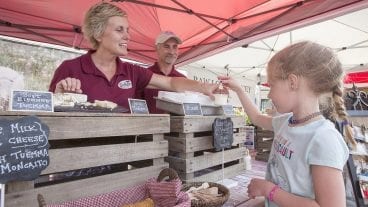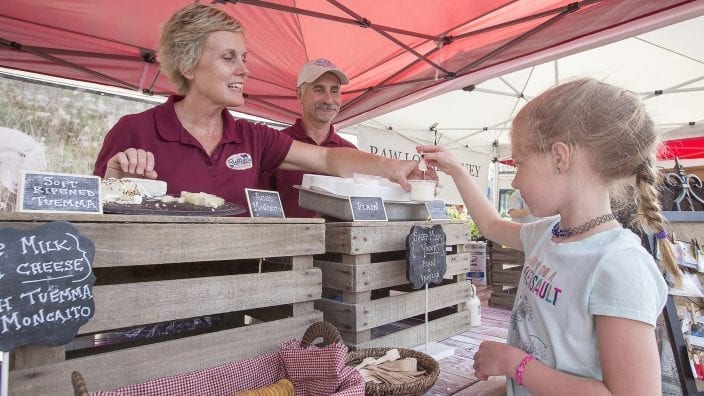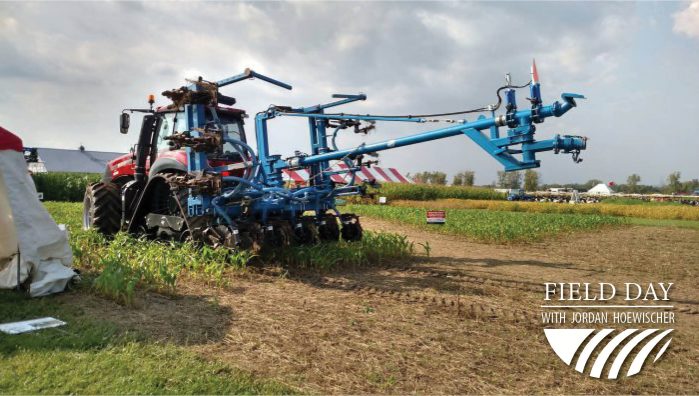Farmer’s Guide to Trucking Regulations available to Ohio Farm Bureau members
The guide includes a farm driver checklist, overview of state and federal regulations and exemptions, CDL qualifications and more.
Read More
Ohio Farm Bureau’s Director of Water Quality and Research Jordan Hoewischer talks with Glen Arnold, associate professor and field specialist with OSU Extension, specializing in research related to manure application technology. This is the first installment of Field Day with Jordan Hoewischer, an ongoing series of conversations with industry experts and leaders who are helping to shape and secure the future of Ohio’s ag industry for generations to come.
Here are a few highlights from the first installment (listen here).
Click here to read the full Q & A with Glen Arnold:
About the research:
“We are in kind of a unique position here in Ohio. We do a lot more manure application research here that I’ve seen in other any other areas of the Midwest…we have more than 50 on-farm plots and we’ve also done a lot of research with the OARDC small-farm plots and have been real happy with the results.”
About the results:
“If you look at the Bobby Moser pyramid – it had to be economically viable, which it is. It had to be environmentally viable, which it is. We’re incorporating the manure as it’s applied to a growing crop. And lastly it is socially viable. You’re placing manure underground. Your neighbors like that and it’s an opportunity to do a good job with our manure management.”
About the future:
“One of the questions I ask farmers is ‘Do you think you have made a significant change in your manure application practices that you think will result in less nutrients leaving your fields?’ and better than two-thirds of the farmers say they have in the last five years. There are a lot of farmers making changes and trying to be part of the solution in northwest Ohio. For a noticeable change, I think it’s going to take a while.”
CAPTION: Manure side dress tool on display at Farm Science Review. Photo courtesy of Ohio State Extension Environmental and Manure Management.


The guide includes a farm driver checklist, overview of state and federal regulations and exemptions, CDL qualifications and more.
Read More


The emergency fuel waiver to allow the sale of summer gasoline blends containing 15% ethanol will lengthen the period during which Americans can continue buying E15 from June 1 to Sept. 15.
Read More

The Small-Scale Food Business Guide covers federal and state regulations for selling food products such as raw meat, dairy, eggs, baked goods, cottage foods, fruits and vegetables, honey and more.
Read More

New resources and technology are broadening the different types of sales tools and strategies available to farmers.
Read More

ODA will enroll 500,000 acres into the program for a two-week sign-up period, beginning April 22, 2024, through May 6, 2024. Contact local SWCD offices to apply.
Read More

Katie Share of Columbus has been named ExploreAg and Youth Development Specialist for Ohio Farm Bureau.
Read More

Mary Klopfenstein of Delphos has been named Young Ag Professional and Ag Literacy Program Specialist for Ohio Farm Bureau.
Read More

The plan has been updated to give sole proprietors access to more rate stability and a smart solution that offers potential savings on health care.
Read More

The American Farm Bureau Federation, in partnership with Farm Credit, is seeking entrepreneurs to apply online by June 15 for the 2025 Farm Bureau Ag Innovation Challenge.
Read More

Adele Flynn of Wellington has been elected treasurer of the Ohio Farm Bureau Federation and now holds the third highest elected office in Ohio’s largest and most influential farm organization.
Read More